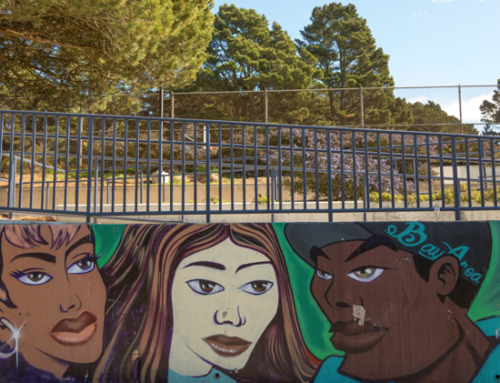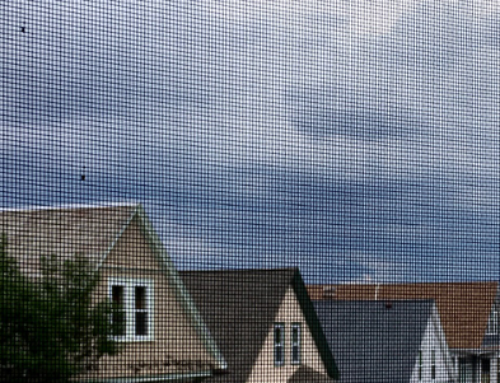Can we imagine a world in which things like public health, safe housing, clean water, nourishing food, sustainable environmental practices, justice, harm reduction, equity, and mutual care top the list of priorities and values shared across the globe? Where struggles against the coloniality of power, patriarchy, racial hierarchies, and morbid capitalism unite the majority of people? Radical advocacy and activist networks have been doing such envisioning for generations, and sci-fi has long offered full scenarios of alternatively imagined futures. But what about anthropologists who may also long for these futures? We have tended to keep our focus more firmly on analyzing the structures that militate against the collective good. We often dissect the mechanisms that impede change rather than envision alternatives to our present realities. Knowledge production in academia, and the structures that accompany it, too often stifles political imagination instead of igniting and nourishing it. What might anthropologically-based fantasies of possible collective futures look like?
The three of us have been talking for years about working together on a project about radical political potentialities. We initially came together thanks to our shared interests in borders and mobility, but our conversations have shifted as contemporary events have shifted: from thinking about how to reframe mobility beyond the hyperbolic language of ‘crisis’ that dominated US and European news from 2015 to 2018, to how displacement is emblematic of the current neoliberal condition across the globe, to reading across the variety of localized, grassroots movements developing over the past decade promoting autonomy, mutual aid, and radical politics for glimpses of emergent possibilities. With the Great Pause precipitated by the Covid-19 pandemic, we wondered how anthropologists and fellow travelers might be fantasizing the post-Covid world in relation to the specific topics and concepts they study. What would an imagined post-Covid world look like that would reflect the sort of society that anthropologists and other scholars would like to live in?
In soliciting this set of essays, we wanted to expand beyond the important analyses of the current moment. Our invitation was to fantasize the post-Covid world, whether in relationship to an analysis of the impact of Covid on the world, or to take the impact of Covid as an excitation to a new imaginary. In the midst of the dystopic accounts flooding the media during the onset of the pandemic, we aimed to capture the radical break precipitated by the pandemic to inject imaginative creativity about alternative futures. And so we settled on fantasy as an incitement to play, daydream, and perhaps find moments of real (not sanguine) hope, even while recognizing that fantasy is an unusual and perhaps deeply uncomfortable genre for most scholars, anthropologists not the least.
We asked the contributors to draw on their empirical research to propose imagined or speculative future scenarios for how things could be better in a post-Covid world than previously. As the essays began arriving, the murder of George Floyd sparked mass mobilizations across the world in alliance with the demands of the Movement for Black Lives. Some of the essays stay closer to actual revolutionary possibilities, while others venture more into the fantastic. What all the essays reflect powerfully is a moment of extraordinary potentiality, rage, and hope.
We asked contributors to fit their fantasy into no more than three pages, which, while challenging, produced a set of short and powerful essays. To our contributors – Lori Allen, Miriyam Aouragh, Hannah Appel, Alex Blanchette, Chandra Bhimull, Celine Cantat, Nusrat Chowdhury, Celina de Sá, Corina Courtis, Divine Fuh, Guy Geltner, Myles Lennon, Cathy Lutz, Manissa Maharawal, Tomas Matza and Nicole Heller, Giulia Mensitieri, Patrick Neveling, Francis Nyamnjoh, Kali Rubaii, Dylan Rodriguez, Emilia Sanabria and Joe Dumit, Yatun Sastramidjaja, Samuli Schielke, Savanna Shange, AbdouMaliq Simone, Janelle Taylor, and Matthew Wolf-Meyer – we are grateful to you for taking the risk of fantasizing!
We also wish to acknowledge the fellow scholars with whom we have been engaged in previous projects who model how to think about and fight for radical potentialities, including, most particularly, Orisanmi Burton, Georgina Ramsay, and Katerina Rozakou.
This group of ten essays is the first of three groups that we will be releasing this summer in AE Collections. We hope you will engage them on the terms in which they have been written: an opportunity to probe the anthropological imagination to see what might not yet be in plain sight.
Cite as: Besteman, Catherine, Heath Cabot, and Barak Kalir. 2020. “Post-Covid Fantasies: An Introduction.” In “Post-Covid Fantasies,” Catherine Besteman, Heath Cabot, and Barak Kalir, editors, American Ethnologist website, 27 July 2020, [https://americanethnologist.org/features/pandemic-diaries/post-covid-fantasies/post-covid-fantasies-an-introduction]
Catherine Besteman teaches anthropology at Colby College.
Heath Cabot teaches anthropology at the University of Pittsburgh.
Barak Kalir is an anthropologist at the University of Amsterdam.




